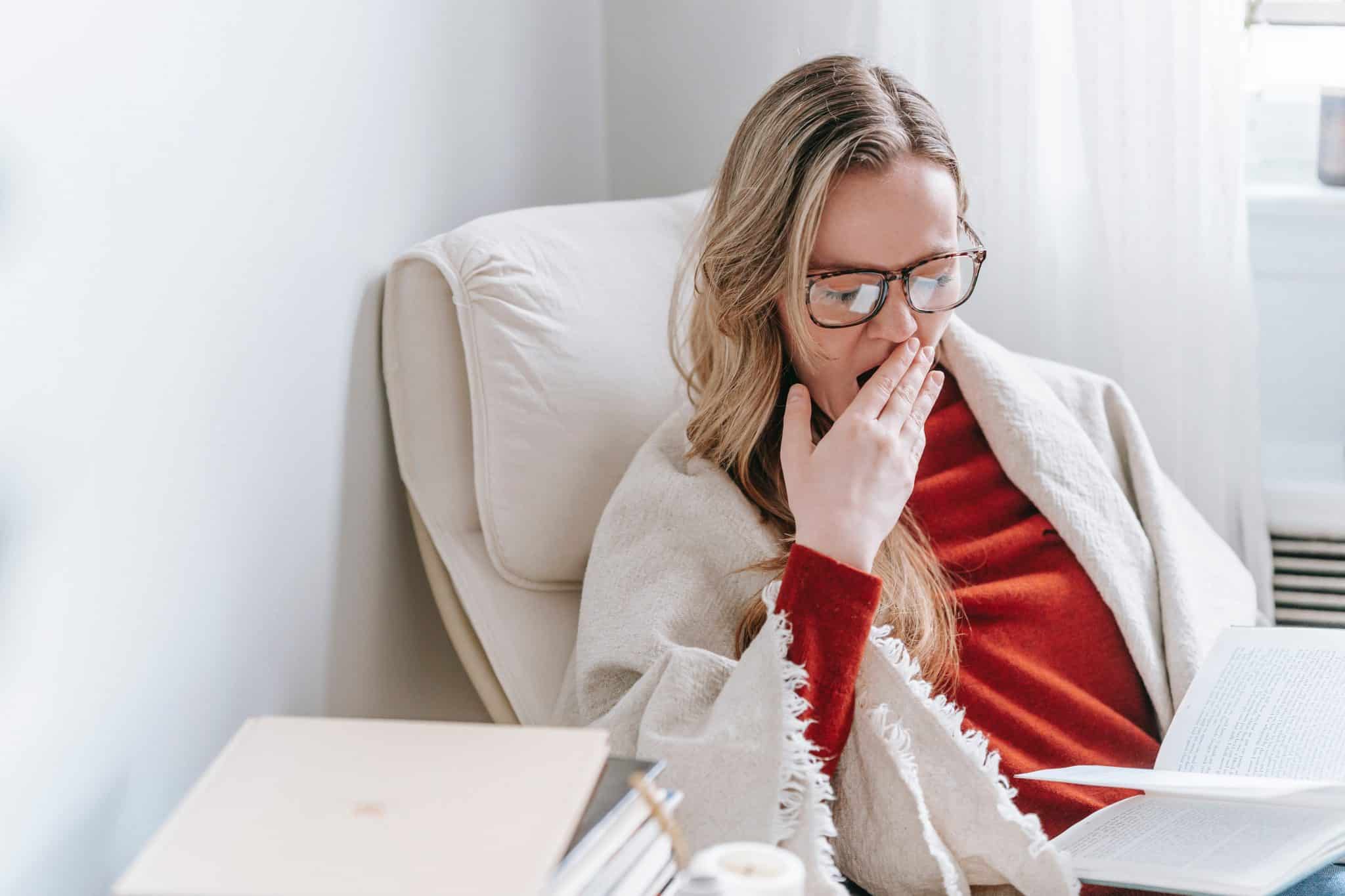When you think of allergy symptoms, you probably think of having congestion and a runny nose. However, some people with allergies experience another symptom that can interfere with their daily lives: fatigue.
How Allergies Can Make You Tired

There a number of ways in which allergies can make you feel more fatigued. These include:
- Interfering with sleep. A 2018 study found that people with seasonal allergies displayed increased fatigue, sleepiness, and had a shorter sleep time than those without allergies. If you are stuffed up or feel unwell, it can interfere with your ability to get a good night’s sleep. Similarly, certain medications like decongestants that you may take for allergy symptoms can keep you awake and delay sleep, leading to fatigue the next morning.
- Allergies release chemicals that make you tired. When you come into contact with an allergen, your body releases chemicals that can make you feel tired. If you experience allergies regularly, your immune system can start to feel worn down from constantly reacting to triggers.
- Allergy medications can make you drowsy. Certain antihistamines that can treat your symptoms can also increase your feelings of fatigue and grogginess.
Treating Allergy Fatigue
Allergy fatigue can cause you to feel hazy and experience brain fog. It can impact your ability to focus while at work or when socializing with others. Thankfully there are steps you can take to help reduce your symptoms and combat allergy fatigue.
- Identify your allergens. If you are unsure what is causing your allergy symptoms, make an appointment with an allergist. They will conduct allergy testing via skin prick or blood tests to confirm your allergies and identify your triggers.
- Reduce your exposure to triggers. If you have seasonal allergies, it may be difficult to completely avoid your triggers. However, you can reduce your exposure by keeping your windows closed, staying inside when pollen levels are high, and making sure to shower and wash your clothes after spending the day outside at Laurel Hill County Park.
- Try medication. Your allergist may recommend over-the-counter medications or prescription-strength treatments to manage your allergy symptoms.
- Consider immunotherapy. Immunotherapy is a method of building tolerance to an allergen by introducing it to the body in small doses over a period of time. Ask your allergist if it could be beneficial in treating your allergy symptoms.
If you would like more information or wish to schedule an appointment with one of our experts, contact Charleston ENT & Allergy today.
